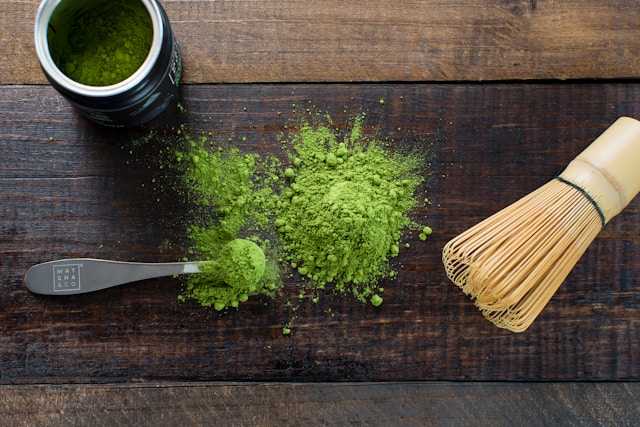Plant based protein powders may contain ingredients that cause bloating or stomach upset in sensitive people. Lactose may play a part, and some products come from soy, wheat or legumes, which could pose issues for those allergic or intolerant of those food sources.
Plant Based Protein Powder – Click Here

Some powders combine plant proteins such as pea and brown rice protein for maximum essential amino acid intake. They may even be sprouted or fermented to increase nutritional benefits.
Benefits
Plant-based protein powders offer an easy, delicious and nutritious alternative to animal proteins. Made from various plant sources like peas, rice, hemp and soy, vegan proteins contain all nine essential amino acids as well as BCAAs for muscle repair and growth. Furthermore, these versatile products make an excellent addition to water, non-dairy milk smoothies or oatmeal for an additional dose of vitamins and minerals!
When purchasing plant-based proteins, look for those that are organic and free from additives. Also take into consideration whether the product contains allergens like gluten or soy as people allergic to these may experience discomfort such as bloating and cramping if they consume a high protein diet. A high quality plant-based protein powder should contain various plant proteins for improved flavor and texture as well as sprouted or fermented versions with higher amounts of plant compounds, vitamins, and minerals for optimal results.
Research demonstrates that plant-based proteins, in addition to whey proteins, can also aid muscle building when taken alongside an exercise regime. Plant-based proteins have the advantage of being less likely to cause digestive issues and often contain essential amino acids including leucine that help stimulate muscle growth.
Plant-based proteins tend to be more easily digested than animal proteins due to being combined with carbohydrates that facilitate their breakdown and absorption in the body. Furthermore, many plant-based proteins contain naturally low amounts of saturated fats, making them an excellent option for individuals trying to cut back on saturated fat intake.
When selecting a plant-based protein powder, make sure it’s organic and free from additives. Also check whether the powder contains allergens like gluten and soybeans. Select one sourced from grasses and vegetables as this will provide essential micronutrients and antioxidants such as vitamin K, calcium, and iron – and may even help if you are sensitive to lactose or FODMAP foods.
Ingredients
Plant-based protein powders offer an ideal way for flexitarians and vegans looking to boost their protein intake. These powders feature proteins sourced from plants like peas, hemp seeds, brown rice, soy beans and moringa as well as flaxseeds, chia seeds and moringa for additional health benefits. Furthermore, many are free of added sugars or unhealthy additives and easier for their bodies to digest than animal-derived alternatives.
Plant protein powders can easily be mixed with liquids or smoothies for portable protein consumption on-the-go, as they’re low in fat and calories compared to animal-derived powders. Furthermore, they’re often free from common allergens like dairy, gluten and soy making them an excellent option for people with food allergies.
A quality plant-based protein powder should contain multiple plant proteins with an amino acid profile that’s wide-ranging, as well as be finely milled for improved taste and evenness of consistency. This will maximize protein intake per scoop and make mixing easier; plus it should come clearly labeled to show what’s in every container!
If you are on a restricted diet, be extra vigilant in selecting your plant-based protein powder. Some plant-based proteins contain high levels of sodium or other unwanted components; others could even contain FODMAPs which could cause bloating or abdominal cramping if you are sensitive. To avoid this from happening, be sure to read labels thoroughly and find products made with multiple plant proteins and free from these elements.
Consideration must also be given when selecting a plant-based protein powder regarding its leucine content, as this amino acid plays an essential role in muscle growth and recovery. For optimal results, look for products produced in an FDA-registered facility which adhere to stringent health and safety standards in order to guarantee quality as well as provide peace of mind to consumers.
Side effects
Plant-based protein powders can help vegans meet their protein goals while following a vegan diet. These powders usually consist of sprouted nuts, seeds and legumes that can easily be assimilated by your body and provide more amino acids than animal-based proteins. In addition, plant-based proteins contain high concentrations of magnesium and potassium essential for maintaining healthy blood pressure levels; furthermore they have anti-inflammatory benefits as well as lower cholesterol and triglyceride levels as well as decreased inflammation levels – plus they contain omega-3 fatty acids which may prevent arterial plaque formation!
Powders without dairy may be suitable for those with lactose intolerance or allergies; however, you should review the ingredient list to ensure that no other substances contaminate the protein source. Furthermore, avoid products containing added sugars that can contribute to weight gain or cause a sudden surge in blood sugar levels.
These powders not only offer an additional source of protein, but can also offer various other essential nutrients. Many plant-based proteins contain high amounts of dietary fiber which aids digestion and can promote regularity; additionally they’re an excellent source of B vitamins and folic acid; they’re typically also low in saturated fat, trans fat, sodium content and may help support weight loss by helping lower blood sugar levels and supporting weight reduction plans.
Plant-based proteins offer more diverse amino acid profiles than whey proteins, making them better suited to supporting muscle growth and recovery. However, it should be remembered that in order to provide all essential amino acids effectively a single protein source must be sufficient; hence a product offering multiple sources is the optimal choice.
If you are contemplating starting on a plant-based protein supplement, do your research first and keep a food and symptom diary to find the one best suited to your unique needs and preferences. However, it is important to remember that too much protein can put too much strain on kidneys so it is advised that before taking this supplement you consult a healthcare provider beforehand.
Cost
Plant-based protein powders do not contain dairy, making them an excellent option for vegans or lactose intolerant individuals. Not only do these protein powders offer a complete amino acid profile for muscle growth and recovery, they may also include micronutrients like antioxidants, vitamins, and minerals – not to mention various flavors to choose from that can easily be mixed into smoothies, juice, non-dairy milk drinks – some even contain ingredients such as chia seeds, pumpkin seeds, hemp seeds, alfalfa or quinoa!
Price for plant-based protein powder depends on both brand and formula; more expensive brands and those boasting special features like being organic, ketogenic or paleo may incur higher fees. On average though, expect to pay approximately the same as you would for whey protein.
Momentous Essential Plant-Based Protein is one of the top plant-based protein powders on the market, offering 30 g per serving from peas, pumpkin seeds, sunflower seeds and alfalfa. Plus it comes packed with probiotics and digestive enzyme blends to support gut health and help you absorb more protein! Furthermore it’s gluten free and NSF Certified for Sport certification for added peace of mind.
NOW Foods Raw Hemp Protein is another good choice of plant-based protein powder. Packed with hemp seeds containing iron, as well as powdered spinach, kale and broccoli to provide extra fiber and vitamin K content, this plant-based powder may cause discomfort for those with sensitive tummies or those taking blood thinners.
Both whey and plant-based protein powders can help you build muscle effectively; your selection should depend on your preferences and needs. When searching for protein powders free from heavy metals – found naturally in our environment or sometimes released through farming practices – small doses should not pose any threat to human health, making most reputable protein powders third-party tested and with clean labels your best choice.
Just Ingredients Protein Powder – Click Here

